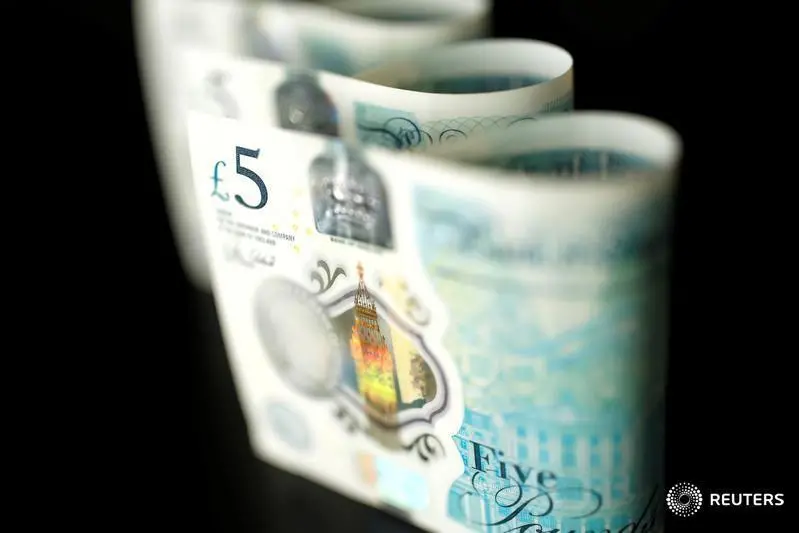PHOTO
The pound fell to its lowest level in almost two months on Thursday after an inflation report sowed doubts about the health of Britain's economy.
Sterling dropped to $1.233 during the Asian trading session overnight, the lowest since April 3.
It then recovered some ground and was last up 0.13% at $1.238, after a 0.4% fall on Wednesday.
Data on Wednesday showed that Britain's core inflation rate - which strips out volatile energy and food costs - rose to a 31-year high of 6.8% in April.
The overall inflation rate fell to 8.7% from 10.1% in March, but economists expected a bigger fall to 8.2%.
Yields on British government bonds extended their rise on Thursday as investors braced for further interest rate hikes from the Bank of England.
Higher bond yields often boost a currency by drawing money towards fixed income investments, but analysts said investors' worries about Britain were taking precedence.
"It isn't as simple as higher rates, higher sterling," said Joe Tuckey, head of FX analysis at broker Argentex.
"Further rate rises are not good news for the consumer who remains under duress. I think sterling reflects this precarious situation."
The euro was down 0.24% against the pound at 86.72 pence on Thursday, after rising 0.21% on Wednesday.
Against the dollar, the pound has fallen more than 2% since hitting a one-year high of $1.268 on May 10.
A weeks-long rise in the dollar has been a key factor. Investors have moved into the safe-haven dollar as they've grown more nervous about the U.S. debt ceiling impasse.
Global investment banks have raised their forecasts for the peak in British interest rates since Wednesday's inflation report.
Bank of America on Wednesday said it now expects rates to peak at 5.25%, from 4.5% currently. Nomura and Deutsche Bank have made the same prediction.
"Higher rates could push the economy into recession," said Jane Foley, head of FX strategy at Rabobank.
"GBP failed to hold up despite the market pricing in additional BoE rate hikes."
(Reporting by Harry Robertson; Editing by Emelia Sithole-Matarise)





















